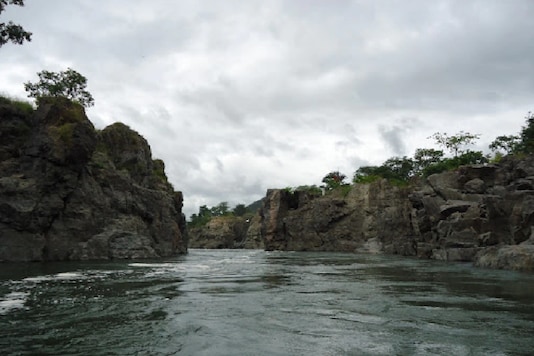
The Deputy Commissioner of Kodagu, Anees Kanmani Joy has informed the Kodavas that she would discuss their demand at the highest level and would try to find a solution at the earliest.
The recent torrential rains and landslide resulted in the deaths of the chief priest and his family members at Talacauvery, the birthplace of river Cauvery. The Brahmin priest Narayana Achar, his wife and three other family members perished in a huge landslide, last week.
Now, the Kodava community, the natives of the hilly district, have demanded that the state government should return priestly duties to them from the Brahmins. Locals fear that if this issue is not dealt with carefully, it might lead to a legal battle which could take on a political colour.
Every year, lakhs of devotees visit Talacauvery and Bhagamandala to offer prayers to goddess Cauvery. Amma Kodavas, a priestly class among the Kodavas have made an official request to the Deputy Commissioner of the district in this regard.
According to them, the pooja and all other associated rituals at Talacauvery were handled by Amma Kodavas for centuries and the Brahmins had no role in Kodava religious traditions and rituals. About 150 years ago, after the annexation of princely state of Kodagu or Coorg by the British in mid-19th century, the priestly jobs were transferred to the Brahmins from the neighbouring Mysore kingdom.
Since then, the Brahmins have been conducting all religious activities at Talacauvery, which is a holy place for the Kodavas and other communities. According to Amma Kodava community leader Bananda N Prathyu, their community had transferred the rights of worship to Brahmins due to certain reasons. However, they argue that there are hundreds of historical records to prove their claims that Amma Kodavas have an ancient connection with river Cauvery and its origins.
“We are the original inhabitants of Kodagu district. We are nature worshippers. Cauvery is our goddess. We have the first right to worship at Talacauvery and Igguthappa temple”, he said.
After the tragic death of priest Narayana Achar and his wife, their two daughters who live in Australia, rushed back home to perform their parents’ last rites.
According to a report in the Kannada daily Vijayavani, when the local government officials issued a compensation in their names, they informed them that they are no longer Hindus and have converted to Christianity. This revelation has now created a furore among the devotees of Cauvery. Since the deceased priest was a leader of the Vishwa Hindu Parishat (VHP), this has now taken a political colour with opposition parties questioning BJP’s commitment to Hinduism.
The priest’s daughters have declined to comment on the conversion and have gone incommunicado. Local Tahasildar has confirmed that their given names and names on record don’t match.
The Deputy Commissioner of Kodagu, Anees Kanmani Joy has informed the Kodavas that she would discuss their demand at the highest level and would try to find a solution at the earliest.
However, some fringe groups are opposing the handing over of the temple to Kodavas, by calling it a violation of old tradition. Kodagu, Karnataka’s tiny district is known as the coffee bowl of India. With its deep forests, rivers, waterfalls and hills, Kodagu is also known as the Scotland of Karnataka.
It was ruled by the Lingayat Kings from the Haleri dynasty till 1830s. The last King Chikka Veera Rajendra was a despot and the British exploited the resentment among his subjects to annex Kodagu with British India. The deposed King was sent to Vellore in Tamil Nadu and later Benares, now Varanasi, to keep him away from his subjects.
Hoping to get his Kingdom back, Chikka Veera Rajendra travelled to England to lobby with Queen Victoria and the British Parliament. After his efforts to secure the Kingdom failed, a dejected King died in London and was buried there. His granddaughter Victoria Gowramma, whose only son died in the First World War, breathed her last in London in 1930s ending the line of succession.
The British ruled Coorg/Kodagu as a separate state for over a century till 1947. It was a separate state with an Assembly till 1956. In 1956, Kodagu was merged with Karnataka State. The martial race of Kodavas have produced two of India’s best Army Chiefs Field Marshal KM Cariappa and General KS Thimmaya. They have their own language Kodava Thakk.
source: http://www.news18.com / News18 India / Home> News18> India / by DP Satish / August 26th, 2020

